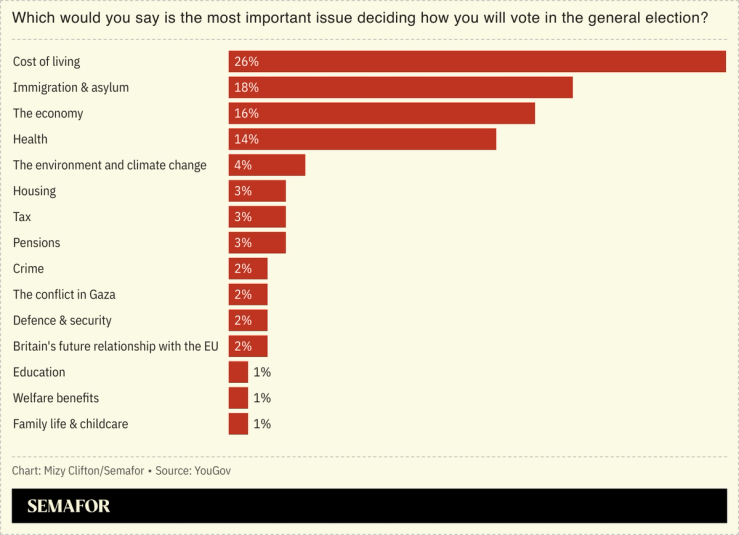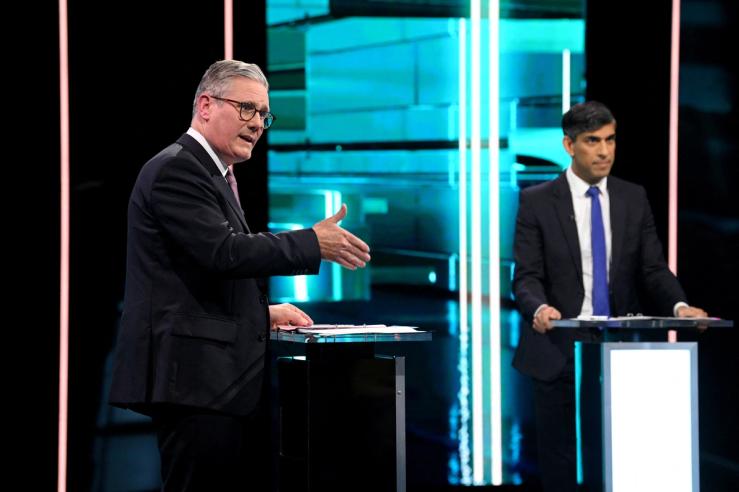The News
UK Prime Minister Rishi Sunak traded blows with the opposition Labour leader Keir Starmer on Tuesday in the first one-on-one TV debate of the general election.
Sunak’s Conservative Party is trailing in the polls behind Labour and some experts have predicted it may face a wipeout in the July 4 poll after holding office for 14 years.
The two opponents sparred over taxation, public services, and defense. A moment of rare agreement came when both leaders said they were willing to work with Donald Trump if he is reelected as US president in November.
SIGNALS
TV debates offer ‘more heat than light’
TV debates are more about well-rehearsed soundbites than genuine policy, and voters who tune into them are “likely intrigued by the spectacle of adversarial conflict,” a professor of media and political communication wrote in The Conversation. Tuesday’s debate was an “ill-tempered” one “with more heat than light,” Sky News’ political editor wrote in a tweet. But its shouty format did show voters the two men’s characters, said Emily Maitlis, presenter of The News Agents podcast: Starmer waffled while Sunak hectored and interrupted. Voters will basically be deciding which of those characteristics they find less annoying, her co-host Lewis Goodall added.
Sunak likely to lose his presidential-style campaign
Underdog Sunak has challenged Starmer to a record six TV debates, The Telegraph reported, but presidential-style campaigns only work if a leader’s personal ratings are good — and Sunak’s net favorability scores have sunk even lower than those of his unpopular party, the Financial Times wrote. Presidential airs and graces simply highlight Sunak’s awkwardness and inability to connect with voters, iNews’ former chief political commentator argued. But many Tory MPs are hoping that the public’s lack of enthusiasm for Starmer — voters were most likely to describe him as “boring” in a January study — will eventually narrow the gap between the two parties, Politicshome reported. Personality (or lack thereof) is unlikely to decide the election, however: Starmer may not be the most charismatic, but “when people speak, he listens”: And “in British politics at the moment, that would appear enough to win,” The Economist said.
On defense, Labour still feels haunted by its past

Labour is trying to shake off its Jeremy Corbyn-era image of being “equivocal” about national security by making defense a foundational issue in this election, the BBC’s political editor said. Starmer’s recent pledge to introduce a nuclear deterrent ‘triple lock,’ which is little more than a commitment to more of the same, shows he still feels vulnerable on defense, a member of the Royal United Services Institute argued in The Spectator. That’s in spite of the fact that security isn’t currently a top-tier concern for voters, according to recent YouGov polling.



